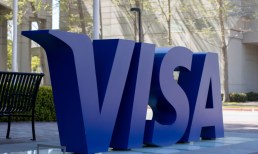Even if small and medium-sized businesses want to do their business digitally, the cost of electronic B2B payments can be high. For low-margin SMEs, that cost can be fatal.
A new collaboration between B2B payments firm PayStand and financial app company ONE UP is looking to remove some of the pain of the cost of transacting electronically.
We’d love to be your preferred source for news.
Please add us to your preferred sources list so our news, data and interviews show up in your feed. Thanks!
The companies revealed their partnership on Wednesday (March 2), a move that sees ONE UP adding PayStand’s payments services to its existing small business accounting, inventory and invoicing solutions. The tie-up allows the 335,000 existing enterprise users of ONE UP to now accept payments online from their corporate customers faster and more affordably.
The firms said businesses can add a “Pay Now” button to electronic invoices sent using the ONE UP service. The solution accepts payment via credit card, electronic checks and bank transfers.
“We spent a lot of time looking for a payment platform that would integrate easily and seamlessly into our application, provide a great checkout experience and enable us to offer our business users with the lowest possible rates,” said ONE UP Founder and CEO Francois Nadal in a statement.
Meanwhile, PayStand Founder and CEO Jeremy Almond pointed to the ability for digital payments to ease friction for corporates.
Advertisement: Scroll to Continue
“Our mission is to use the power of the Internet to simplify, accelerate and lower the costs of business payments,” he said in a statement. “Working with ONE UP, we can make our vision a reality for hundreds of thousands of small businesses.”
According to reports, there are two service plans being offered from the collaboration. The first has no monthly fees, while the second costs $10/month but allows card acceptance at an interchange rate of 2.49 percent. PayStand’s eCheck solution will cost businesses 0.49 percent, the companies added.
“By offering an easy, low-cost, online payment option directly within invoices, ONE UP users can dramatically improve their cash flow by reducing time-to-cash, while simultaneously eliminating the time and costs for processing checks,” the companies added in their announcement.

 Add as Preferred Source
Add as Preferred Source



